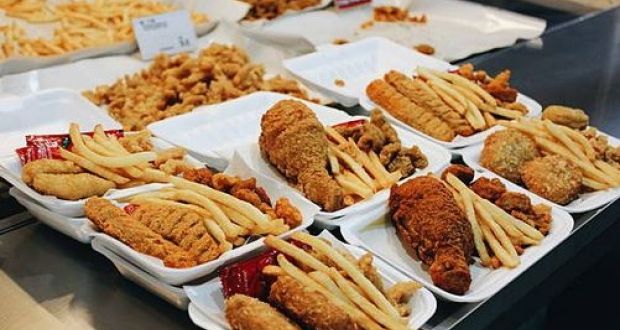Hippocrates famously said, “Let food be thy medicine” and that applies to heart health: Diet is incredibly important. Cardiologists see firsthand what a bad diet can do to your heart.
More than 600,000 people die of cardiovascular disease in the U.S. every year — the leading cause of death for both men and women, according the Centers for Disease Control and Prevention.
1. Bacon, sausage and other processed meats
Hayes, who has a family history of coronary disease, is a vegetarian. But even before she stopped eating animal protein some 25 years ago, she avoided processed meats because they’re high in calories, saturated fat, salt and have added ingredients like nitrates.
It’s not only heart health that may be affected by overindulging in hot dogs, salami, bacon, ham and jerky: The World Health Organization has determined eating processed meats causes cancer, Freeman pointed out.
2. Potato chips and other processed, packaged snacks
Stay away from the little pouches of salty, crunchy carbs you might encounter in a vending machine, the doctors advised.
“Our culture values convenience, which is great, but convenience doesn’t mean you have to eat packaged processed foods with added sugars and salt,” Freeman said. “Nature has provided for us the exact foods we should be eating; we just need to eat them.”
Hayes agrees with many nutritionists that simple carbs — found in chips, breads and crackers — are a bigger issue than fat. Look for ways to increase the complexity of what you eat, in terms of grains and other nutrients, she advised.
3. Dessert
Enjoy added sugars in very limited quantities, if at all, Freeman noted.
When it comes to desserts like pies, ice cream and candy bars, Hayes indulges once a week at most and keeps her portion small to limit calories. Her main goal is to maintain a healthy weight: She’s weighed about the same for the past 30 years.
4. Too much protein
“We seem to be obsessed with protein in this country,” Freeman said. “It’s not uncommon to see people getting two times as much protein as they may need in a day and that taxes the kidneys and may cause more problems down the road.”
So don’t overdo it and opt for plant protein, both doctors advised.
5. Fast food
It’s been years since Hayes has had any fast food. Some chains let you concoct a reasonably healthy item with fresh vegetables, but most burger and chicken fast food restaurants should be avoided “because there’s virtually nothing on the menu that’s healthy for you,” she said. Even the items that aren’t fried are typically high in simple carbs.
6. Energy drinks
Freeman said he avoids them because they contain added sugar, plus ingredients that may potentially induce problems like high blood pressure or arrhythmia.
That doesn’t mean you should skip caffeine. It’s quite healthful to drink tea or coffee in moderation every day, he said. Just watch what you put in your cup: Black coffee can turn into a calorie bomb if you add sugar, whipped cream, caramel and other toppings.
7. Added salt
There’s virtually no American who doesn’t get too much salt in their diet, Hayes noted. It’s not uncommon for a person to get three or four times the recommended daily amount, Freeman added. Added salt lurks in products you may not realize: cereal, a pickle that comes with your sandwich or a chicken breast that’s been brined to stay juicy and moist.
Read the labels and be aware of how much sodium you’re taking in. You need salt to live, but a high-sodium diet raises blood pressure.
8. Coconut oil
It has more saturated fat than lard, Freeman said.
“It’s used in some studies to induce atherosclerosis — sludge in the pipes, if you will, in rats and other animals,” he noted. “It works great topically — it’s a wonderful moisturizer for hair and skin — but I wouldn’t eat too much of it.”




